Is the calorie-free sweetener erythritol safe? The FDA did not evaluate long-term use, and new research suggests it may cause blood clots in people with high blood pressure and other risk factors.
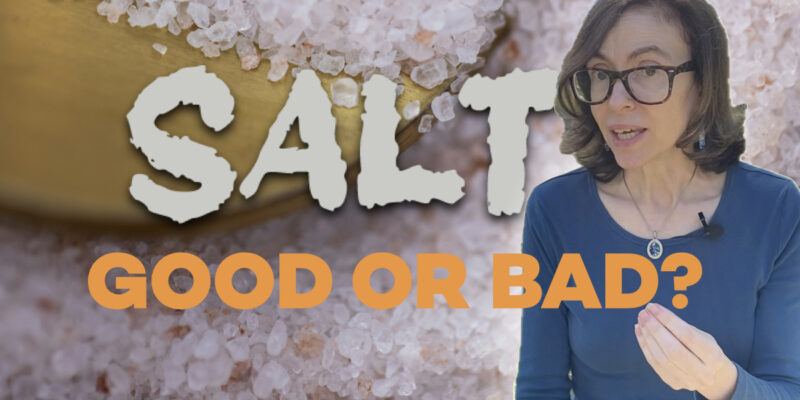
Guilt by Association: Salt Is Not Even A Little Bad For Our Health
Table of Contents
- You might think salt makes you bloated. It’s actually something else.
- Ignoring How Healthy Kidneys Easily Deal With Salt
- A sprinkling of circular reasoning about salt.
- Disregarding toxins that damage kidneys.
- Overlooking the role of malnutrition.
- Making recommendations before doing any research.
- Hiding Pro-Salt Evidence.
- Lowering Your Blood Pressure Lowers Your Risk of Heart Disease, Right? Not necessarily.
- How Much Salt is Too Much?
- The Epidemic of Salt Deficiency
- Does anyone need to limit salt?
You might think salt makes you bloated. It’s actually something else.
We hear all the time that salt is bad for us. So my patients who notice swelling or bloating after eating salty junk food naturally assume salt caused their symptoms. But of all the ingredients in junk food, salt is the least likely to cause health problems.
I grew up surrounded by messaging that salt was bad but I was always skeptical. Probably because my dad, a doctor, always snatched up the shaker and doused his food in salt before even tasting it. He’s done that his whole life, and now he’s 83 and his kidneys are still going strong. In fact, he donated one to my brother.
Skipping salt entirely can make veggies and other healthy foods bland and unappetizing. Not only is salt part of a delicious diet, but contrary to popular opinion, not getting enough salt can make you feel fatigued, cause headaches, and may contribute to kidney stones, osteoporosis, and dehydration. Whenever people talk about hypertension, salt almost invariable becomes part of the conversation. It’s time to debunk the eight ways they condemn salt.
This article is continued below...(scroll down)
Ignoring How Healthy Kidneys Easily Deal With Salt
Your kidneys are amazing organs. You could even say they think for themselves. Don’t get me wrong, brain, liver, lungs, heart, you all rock, too. Especially when given the right nutrients. Kidneys are basically a series of intelligent tubes packed tightly into a kidney-shaped sack of fibrous fascia. Their mission in life is to regulate nutrients, things like calcium, phosphorus, magnesium, potassium, glucose, ketones–and salt! (Sodium chloride.) How good are they at their jobs? So good that if we don’t eat enough salt, our kidneys hang on to as much as they can. If we get too much salt, they’ll put more salt in our pee. Problem solved. Kidneys can even release hormones that will make us thirsty so we drink more water, which gives them more fluid to work with so they can more easily get rid of all the extra salt.
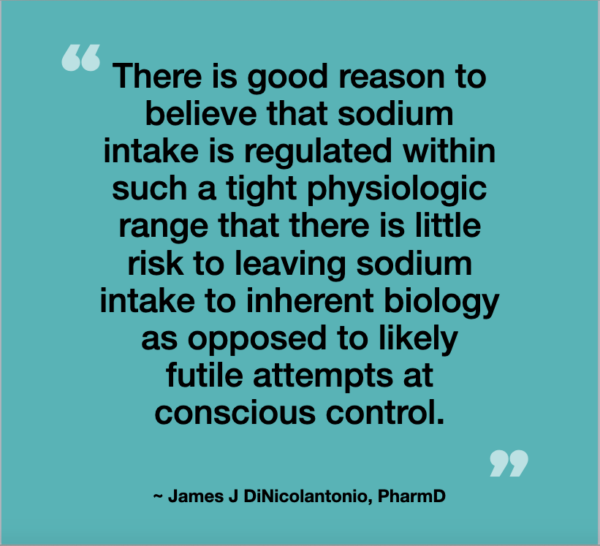
I went into medical school in part because I admire the body’s incredible ability to maintain homeostasis. We do it, mammals do it. When elephants sense they don’t have enough salt they walk 20 miles to get to a cave that has the minerals they need. Still, medical school puts out the message that any small misstep in our salt intake puts you at risk of either getting high blood pressure or making your high blood pressure worse than it already is.
A sprinkling of circular reasoning about salt.
The general consensus in the medical community is that salt can be a problem if you have renal insufficiency (kidney damage). And that kidney damage can be caused by consuming too much salt over time. This begs the question, how does one enter this cycle of salt sensitivity in the first place? If you’d like the answer for that keep reading.
Here’s a hint. It ain’t the salt. Talk to the 100-year-old Koreans eating daily kimchi. Or the Portuguese and Norwegians with their salt cod. Or all the other cultures that have made salty fermented and dried foods a huge part of their daily existence. Tell that to Nancy, the salt monster from the Star Trek episode The Man Trap who would literally kill people just to get salt.
Still, it’s no wonder that after hearing salt is no good and then consuming foods high in salt and then feeling bloated afterward, people often conclude that salt does take a toll on the body. Inflammation is no good, right? And being bloated feels almost like you’re inflamed.
If you’ve experienced this, let me ask you something. Do you feel bad after having a dill pickle, which is very salty? Of does it happen only after you eat junk food, processed food, or takeout?
Most people are not like my dad, getting salt from their salt shakers. Most folks get 80 percent of their salt from packaged foods, restaurant foods, and other prepared foods that are already heavily salted. Before we can even begin to consider the effects of salt, I think we need to discuss another, far more important fact about packaged foods. Their manufacturing often generates serious toxins.
Disregarding toxins that damage kidneys.
Remember how I said I love kidneys and their miraculous tubing that maintains nutrient balance in our bodies? I love healthy kidneys even more. But say you wanted to deliberately hurt kidneys and make it harder for them to do all the wonderful things I was talking about earlier. The fast-track plan to hurt your kidneys is the standard American diet. Empty calories soaked in the Hateful Eight vegetable oils.
Starting in the 1900s, a new kind of food entered our food supply. We often hear that processed foods and junk foods are bad for us because they contain harmful additives. And, indeed, these additives are not healthy by any means. But they’re present in tiny amounts, like thousands of a gram or less. The far bigger source of toxicity is often a main ingredient: the added oils.
The added oils belong to a collection of vegetable seed oils I’ve taken to calling the Hateful Eight. These vegetable oils didn’t exist before the industrial era. Today they are everywhere, not just what you bring home from the store but also food service (like your workplace cafe), hospitals, prisons, and nursing homes. They’re quite hard to avoid. Fancy restaurants use them too. [Visit my full list of good fats and bad here.]
Because they’re so ubiquitous, the average US person is now getting about 30 percent of our daily calories from these eight oils.
RBD Vegetable Seed Oils (The Hateful Eight) Contain Dangerous Toxins
These eight oils contain hazardous toxins that doctors and dietitians don’t learn about. The toxins develop from nutrients present in the seeds during the processing. These nutrients, called polyunsaturated fatty acids, are unstable around light, heat, and oxygen, and will chemically deteriorate into toxins. In other words, harsh processing transforms something that could be good for us into something bad.
It’s never good to overcook our food or repeatedly reheat it. Overcooking, repeatedly reheating, or otherwise thermally abusing our food, can convert nutritious ingredients to worthless or even harmful compounds our liver and kidneys have to eliminate. Fortunately, healthy organs can handle the relatively small amounts of toxins we might get from occasionally eating overcooked foods.
Vegetable oils, on the other hand, are a different matter. They deteriorate extremely quickly transforming into significant amounts of significantly bad toxins that can potentially damage every organ–including our kidneys. They’re also a totally new ingredient that didn’t exist before the industrial era. The combination of unique toxicity and novelty in the food supply makes vegetable oils a much more logical root cause of high blood pressure than salt.
Here’s the science that you need to know to protect your health. These eight oils contain large amounts of fragile polyunsaturated fatty acids, which nature normally protects with nutrients. When manufacturers extract the oil from these seeds in giant factories, they’re removing those vital protective nutrients, leaving the fragile fatty acids exposed to the elements. Once exposed, they react with oxygen and deteriorate into myriad toxins.
The Awful Aldehydes
One of the worst groups of toxins you’ll ever eat is a family of toxic chemicals called alpha beta-unsaturated aldehydes. This type of aldehyde is responsible for the toxicity of cigarette smoke. Some of the most well-studied members of this toxin family include 4Hydroxyhexanal and acrolein, which contribute to cancer, Alzheimer’s, heart disease, and numerous inflammatory conditions. Toxicologists have tried to warn health practitioners about the toxins, too. But papers like those I just cited don’t get published in journals that health practitioners typically read.
Doctors and dietitians learn nothing about the oxygen and fat reactions that lead to this sort of toxicity. I happened to learn about them during my advanced organic chemistry classes at Cornell University, where I went before attending medical school. They’re called oxidation reactions.
Oxidation is very complicated, so don’t feel bad if you don’t know much about these types of reactions. Oxidation is so complex, omnipresent, and varied that I’ve met edible oil experts who’ve worked in the industry their whole lives and still don’t think these toxins are present in significant amounts. (Probably because their salary depends on them not knowing.) But thanks to a tiny handful of toxicologists who think more holistically, we have proof that foods made with these oils are full of toxins.
Numerous animal studies have shown that heated vegetable oils cause hypertension, as reviewed in this recent paper. This survey on fried food consumption showed that people who eat more fried food have more hypertension. And this survey on cooking oil shows that using corn oil can increase blood pressure.
(While it doesn’t prove causation, studies like this one show that people on dialysis have high levels of these alpha-beta unsaturated aldehydes in their kidneys.)
We have a lot of research indicating that aldehydes do in fact lead to hypertension, but little to no evidence that salt does. Then why do we hear every day “Watch your sodium intake” and yet your doctor probably has never told you to moderate your blood pressure by “cutting down your aldehydes.”
It goes like this: years of processed food consumption damages our kidneys. But it’s not just about the vegetable oils. it’s about what they switch out in processed foods, real food for fake, that further exacerbates the damage your kidneys endure.
Overlooking the role of malnutrition.
Your kidneys are resilient. But they’re not invulnerable to dietary insults. On a typical diet, they can and will suffer damage under the barrage of oxidative stress induced by toxins from vegetable oils and lack of protective nutrition.
When we make our food from scratch, we’re choosey. We tend to pick out the best produce, the best-looking packages of meat, and the fresher packages that were just restocked on the back of the shelf (guilty). When people we will never meet make our food, they’ll take every conceivable cost-cutting measure, including some that only evil geniuses would conceive of.
How to make food cheaper.
Three big factors increase costs: Expensive raw materials, a short shelf life, and a need for refrigeration. Using cheap raw materials with a long shelf life and no need for refrigeration reduces costs. The processed food industry makes every effort to apply these principles.
Manufacturers use cheaper ingredients to make replacements. Instead of ground beef, for example, they’ll use “lean, finely textured beef” (aka “pink slime.”) They’ll make partial replacements so we are less likely to notice. For example, using textured or hydrolyzed vegetable protein, like soy protein, to replace some of the meat. They’ll replace milk with whey protein, and use casein powder instead of cheese. Instead of strawberries, they’ll use natural or artificial strawberry flavor. They also add “filler” ingredients like breadcrumbs and corn husks. Corn husks also boost fiber, which makes dietitians happy. Most of these cheap substitutes are dehydrated, which prevents mold growth and extends shelf life. Dehydration also makes them lighter, which reduces shipping costs.
Unfortunately, these cheap replacements contain less nutrition than their more costly counterparts. So the more packaged foods you eat, the less nutrition you get. As an example, whey protein has less Vitamin B12, Calcium, Phosphorus, and Vitamin A than milk. Nutrient deficiencies linked to high blood pressure include potassium, iodine, magnesium, and protein (especially arginine).
Speaking of nutrient deficiencies, sodium and chloride are minerals. How much should we get to avoid deficiencies?
Making recommendations before doing any research.
Sodium and chloride are two of the most important micronutrients in the human body and yet researchers don’t have enough information on how much our bodies need to set an official RDA (recommended daily intake). Instead, they’ve set an AI (adequate intake) of roughly 2 grams per day for an adult, which equates to 2/3 tsp (or 4 grams) of salt. This is an educated guess because we don’t know much about how much a human body needs.
Sodium and chloride help our nerves conduct electricity, help our muscles move, help keep our cells from exploding and perform a ton of other vital functions. They’re also powerful antioxidants that prevent damaging oxidation reactions in our blood and cells. Making a recommendation to ‘cut down’ without knowing how much we need is not just illogical. It’s medically irresponsible.
Somehow, no one writing our guidelines has noticed that they’re nearly impossible to comply with because they’re based on so little evidence that they contradict themselves.
We need at least a minimum of 1500 mg of sodium per day.
The current consensus holds that we need at least a minimum of 1500mg per day, or about 2/3 teaspoon. This comes from the National Academy of Sciences, available here. (Technically it’s not a minimum but an “adequate intake” or AI.
The maximum amount of sodium is…also 1500 mg?
According to the American Heart Association, if we are healthy, our “ideal” sodium intake is no more than 2300 mg. But they also say that “most adults” and anyone who has high blood pressure should limit their intake further, to 1500 mg. Harvard says anyone over 50, and all African American adults need to cap their intake at 1500 mg.
Apparently, 1500mg is both the minimum and the maximum for possibly half of the population. I guess those of us in this category better get good at counting grains of salt.
Or maybe that 1500 figure is wrong.
VIDEO CLIP
Acupuncturist Chris Kresser Making Sense of Contradictory Evidence for Salt Sensitivity
Hiding Pro-Salt Evidence.
We’re all happier knowing we’re right than wrong. Even scientists. Unfortunately, this human foible gets in the way of science becuase it contributes to something called confirmation bias. Confirmation bias refers to the tendency to interpret new evidence as confirmation of one’s existing beliefs or theories. It prevents us from seeing the truth. It can even prevent journal editors from publishing research that contradicts our existing beliefs or theories. And that’s a huge problem because it prevents other people, who may be more open-minded, from ever seeing some very important evidence.
VIDEO CLIP:
Jason Fung MD Shows Evidence of Confirmation Bias In The Literature On Salt
Lowering Your Blood Pressure Lowers Your Risk of Heart Disease, Right? Not necessarily.
A recent Cochrane review showed that cutting sodium intake down from a baseline of roughly 7000mg to under 3500mg did lower people’s blood pressure. A tiny bit. In this study, people with normal pressure experienced an average 2/1 unit reduction. So if their pressure was, say 110 over 70 it would drop to 108/69. People with hypertension experienced a slightly greater average reduction, 5/3. So if their pressure was, say 160/95 it would drop to, say 155/92. So that might be good, right? Many experts assume so, and cite this study as evidence for cutting down on salt,
But I would disagree. Firstly, it’s not a big drop and it’s not clear to me that such a tiny dip means anything at all. Secondly, and more importantly, high blood pressure is just a surrogate endpoint. This means we think lowering blood pressure reduces your risk of a real medical condition. Medical science has convinced itself that lowering blood pressure reduces the risk of heart attacks, strokes, and kidney problems. But does it?
Sodium intake below 2000mg increases the risk of heart attacks and strokes
At least two large, well-designed studies mentioned in the World Health Association’s Geneva report here conclude that people getting less than 2000 mg of sodium per day suffer from more cardiovascular disease and strokes than people getting larger amounts of sodium.
How can that be?
According to the aforementioned Cochrane review, although cutting salt consumption did slightly improve the average blood pressure, it also elevated people’s average stress hormone levels. Hormones affected include plasma renin, aldosterone, and noradrenaline. The kidney releases these hormones in response to what it perceives as inadequate blood flow. These stress hormones are released by the kidneys when they need to raise blood pressure back up again. Why? Because you had high blood pressure for a reason that had nothing to do with salt. It had to do with the fact that your kidneys sensed they were in trouble from the toxic aldehydes, malnutrition, and other factors.
This may explain something called “inverse salt sensitivity.” The term refers to the fact that when some people cut down on salt, their blood pressure goes up. Maybe that’s from the stress hormones. Maybe high blood pressure could be a sign of salt deficiency!
How Much Salt is Too Much?
I’m sorry but I can’t give you a numerical answer, here. I believe our body protects us from overdosing on salt. For one thing, we can’t eat food that’s way over-salted because it tastes so bad we’d spit it out.
For another, the current recommended ideal of 2300 mg of sodium equates to 6 gm of salt, or just over a tsp, is actually quite a lot of salt. Each shake of a typical restaurant tabletop salt shaker delivers 40 mg of sodium. So if you only eat whole foods and only add salt from the table shaker, it would take 57 shakes to exceed that limit. Even my dad never used that much salt.
Let’s say someone paid you to choke down oversalted food and we got 2 or 3 teaspoons instead of just one. You’d still be fine as long as you weren’t dehydrated, had access to water, your organs were functional and you’re not taking medications. Our kidneys can adjust how thirsty we are, how much salt stays in our body, and how much it eliminates. That’s those mammalian kidneys at work. As long as your organs are healthy and you’re not taking certain medications, you don’t have to worry. (If they’re not of course that’s a different story.)
While it may be impossible for healthy folks to consume too much salt, we can lose so much sodium that we don’t have enough.
The Epidemic of Salt Deficiency
Due to the pervasive myth that salt is bad for us, many people don’t add salt to their foods. Between 3 and 6 million people are hospitalized for low sodium every year (at a cost of at least $4 billion).
Certain antidepressants and blood pressure medications can make it hard for our body to hang on to salt. Combine that with drinking a lot of water, and you are set up for total body sodium depletion. This can cause headaches, dizzy spells, or overwhelming fatigue. Doctors may misattribute these symptoms to other problems, like age, menopause, or thyroid problems when the solution could be as simple as adding more salt to your diet.
Even when blood levels do reveal mild salt deficiency, people are almost never told to eat more salt. That is, not until something serious happens.
If a person without enough sodium develops an infection, that is a recipe for disaster. Especially for folks over 65, who can quickly become too weak to walk or care for themselves. If living alone and no one looks in on them, they may not be found until seriously dehydrated with organ failure.
What it feels like when you’re not getting enough salt
If we sweat a lot without replacing electrolytes or otherwise lose more sodium than we take in, our blood levels can go below normal, and we start to feel weak and have trouble concentrating. This is a particular problem in hot climates. It’s why a sports medicine doctor at the University of Florida, Gainesville—home of the Florida Gators football team—added regular table salt to his now-famous sports hydration drink: Gatorade.
When our blood sodium goes too low, that is called hyponatremia. Hyponatremia, or low blood sodium, can cause headaches, dizziness, and even seizures. Low sodium can make a person feel so awful that it’s not uncommon to believe they are about to die! Indeed, low blood sodium is a very dangerous situation and if levels go too low a person can suffer from seizures, slip into a coma, and if they’re left alone too long they can die.
For the most part, unless we really sweat a lot, like to the point of dizziness and dehydration, seriously low blood sodium is very rare. However, a chronic low-salt diet can be too much for our systems to handle.
Does anyone need to limit salt?
If we have serious damage to our salt-regulating organs, like certain tumors, advanced kidney disease, or heart failure, then we do need to watch our salt intake. But at that point, you’re really sick and usually getting blood tests regularly, so this is not something that can sneak up on you.
Final Message
Health authorities telling us that salt causes hypertension and we need to limit our intake are causing incredible suffering every day. Salt makes many healthy foods taste better! That’s why, in my book The FATBURN FIX, I recommend this simple rule: seek salt.
Resources:
If you like this content, you may enjoy my latest book called Dark Calories, the ultimate guide to navigating our toxic food system and surviving our ethically conflicted medical system.
To learn more about vegetable oils, start here.
Before you eat out again, download Seed Oil Scout. This paid app gives you recommendations on finding seed-oil-free restaurants in your area.
Please note: Please do not share personal medical information in a comment on our posts. It will be deleted due to HIPAA regulations.
This Post Has 11 Comments
Note: Please do not share personal information with a medical question in our comment section. Comments containing this content will be deleted due to HIPAA regulations.
















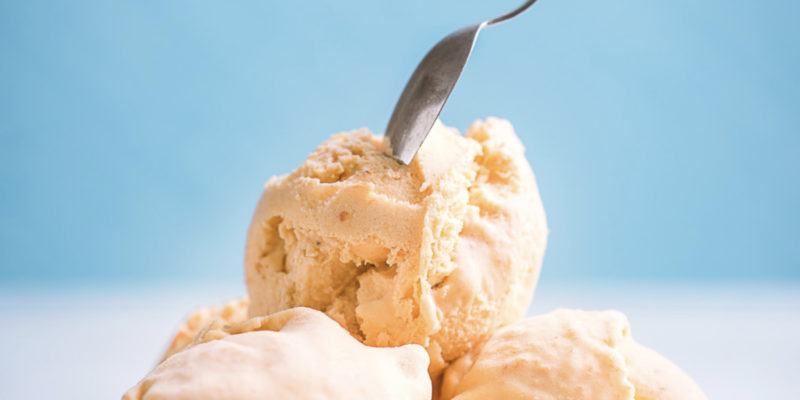
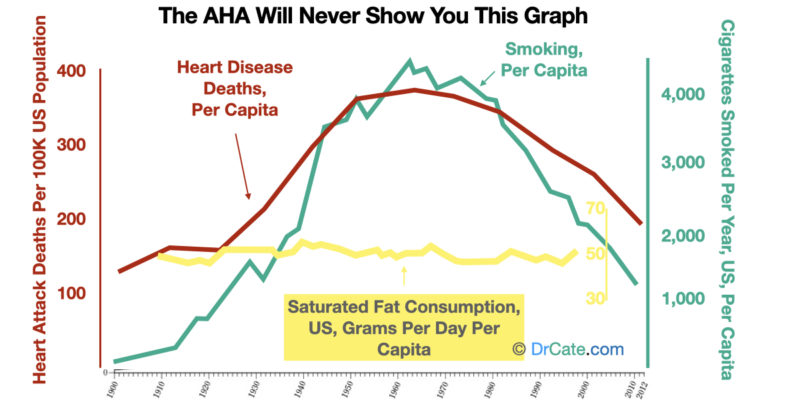
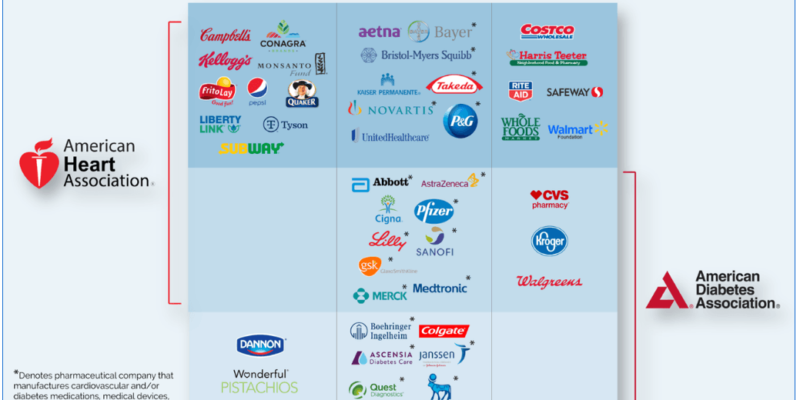
Hello Dr. Cate,
Thank you so much for your diligent research and making so much of your information free; you clearly and truly want to help people! What baby formulas do you recommend? I can provide my baby with a little breast milk, but no where near enough. The organic formula I use, which I thought was great, has some of the awful oils. I’m so terrified I’ve already compromised his health as he is nearly a year old. Please help!
Hi Carolyn,
While you wait to hear from Dr Cate I want you to know that I had the same concern. My milk supply started drying up when my LO was around 10 mo. If you’ve made it a year that’s great. Your babies immune system kicked in around 6-9 mo. That aside, my now 17 mo old daughter still enjoys her milk. We do raw milk and Serenity Kids A2 whole milk toddler formula for 12 mo plus. It doesn’t contain any vegetable oils but instead palm, and coconut. I am on the hunt for one for babies under a year that doesn’t contain vegetable oils since we have a newborn, and I want to be prepared in case I start drying up around 10 mo again. I hope this helps!
Regards,
Emily
Please post to the infant formula article which you can find by doing a search using the search tool for my website. Thank you!
If it’s not sodium, what *does* cause water retention and ankle swelling?
I’m very careful about avoiding junk food and prepare my own food from raw ingredients, but my ankles have been swollen for a couple months. Could it be some other mineral or something?
It could be a mineral imbalance or also quite a number of things including a growth pressing on the large veins in your pelvis, or kidney or heart issues due to undiagnosed insulin resistance. I’d definitely get checked out.
As far as treatment, doctors don’t really know how to diagnose or treat insulin resistance so can only recommend medications. But insulin resistance can also be reversed with diet.
What type of salt is best to use daily? Traditional table salt, sea salt, pink Himalayan or Celtic salt?
They’re all pretty good but traditional table salt sometimes has anti caking agents and other non-nutritive additives that the other two you list usually do not.
Excellent article. I’ll be sure to pass it along.
I was also wondering what your opinion is on oxalates. Is it just that they’re an issue for unhealthy bodies, or in very high amounts? I’m seeing more people talk about the need to limit oxalates in the diet, saying that many of us no longer have the proper gut bacteria to process it.
If your kidneys are healthy and you drink enough water, oxalates are not an issue. I’ve not been convinced there is a real basis by which they could harm gut bacteria.
Your discussion only concerned the sodium salt intake and regulation, which is the blood salt of consequence. What about intake and regulation of potassium salts which are the cell salts of consequence? And what other minerals do we need to be concerned with in our depleted soils? Magnesium, zinc and others? The sodium salt debate is sucking up most of the attention; let’s balance it with a discussion of all the important minerals.
Another great topic for another article.